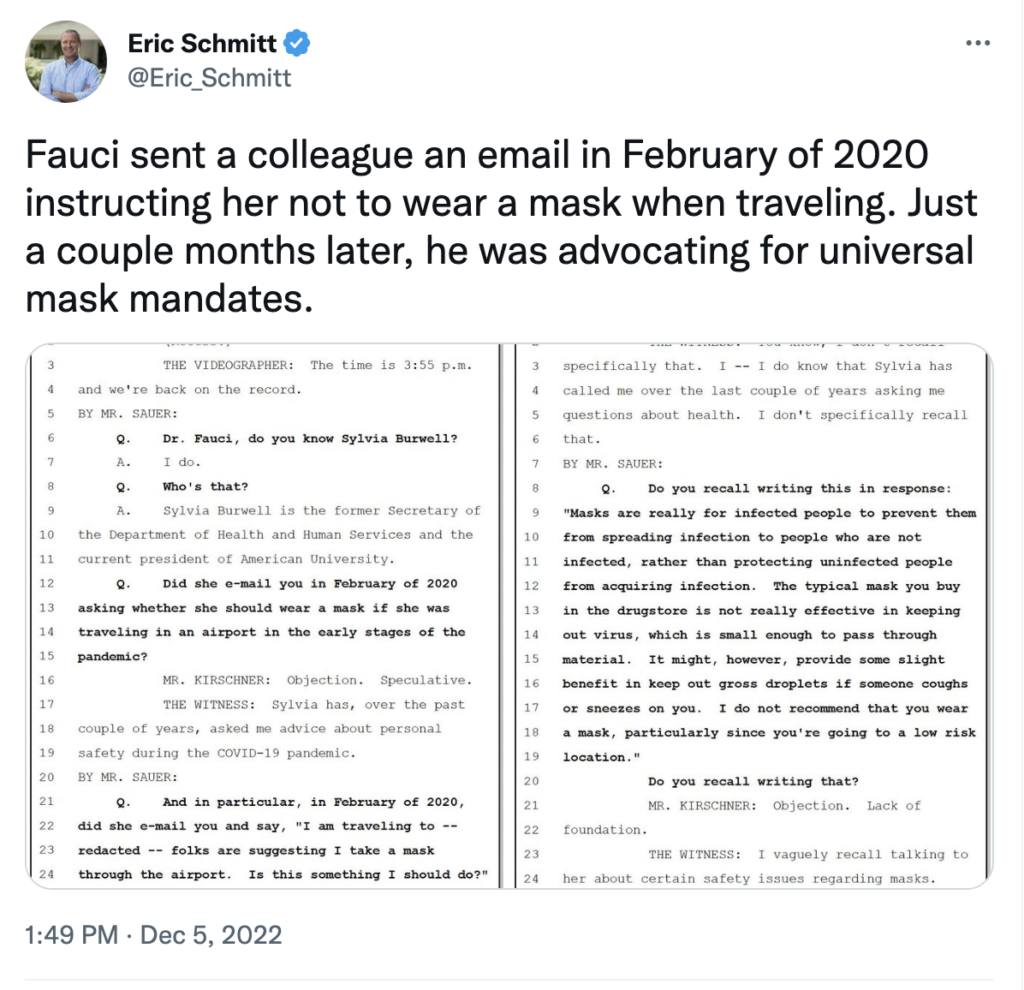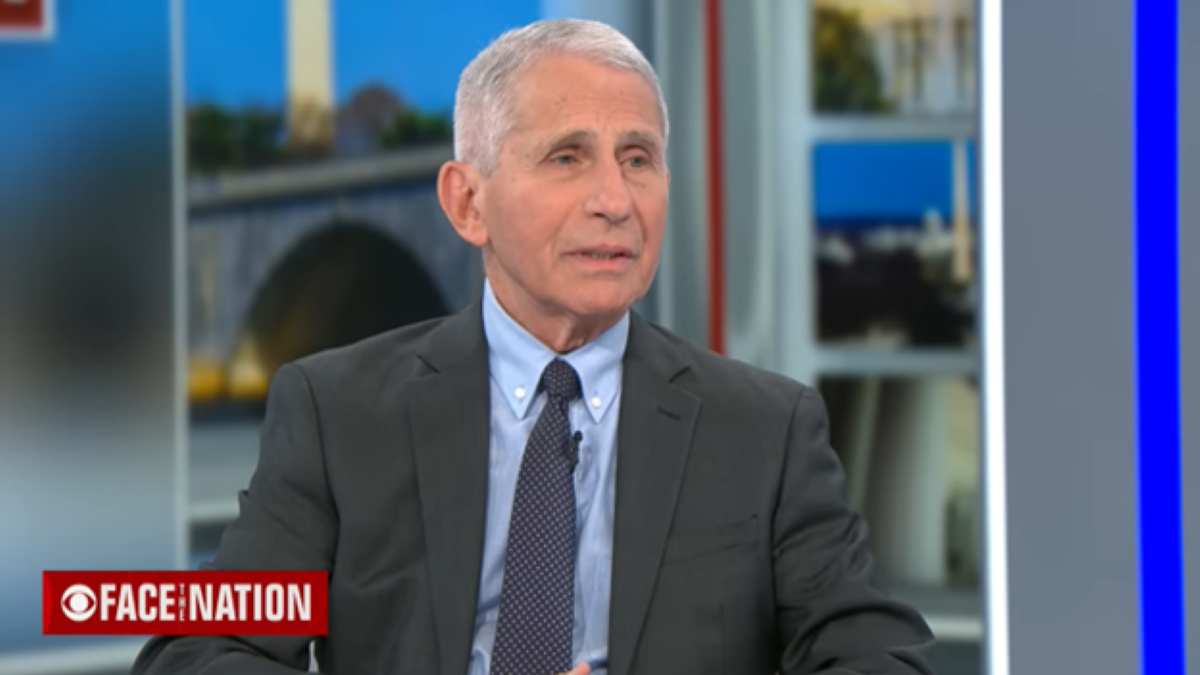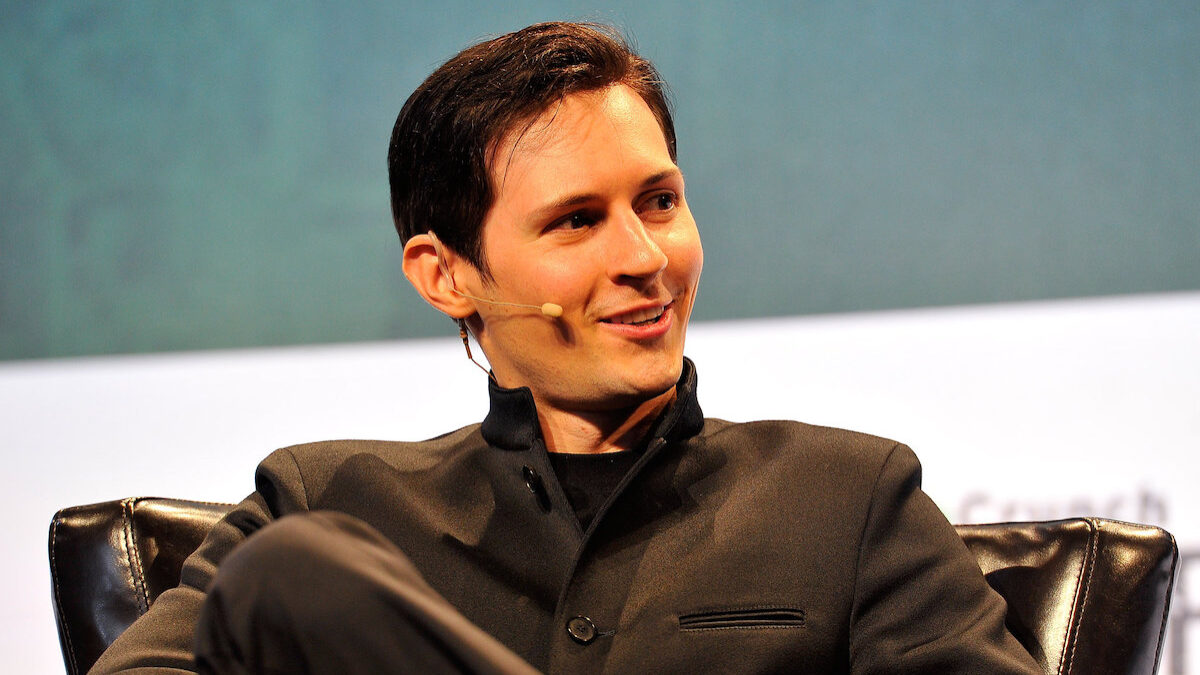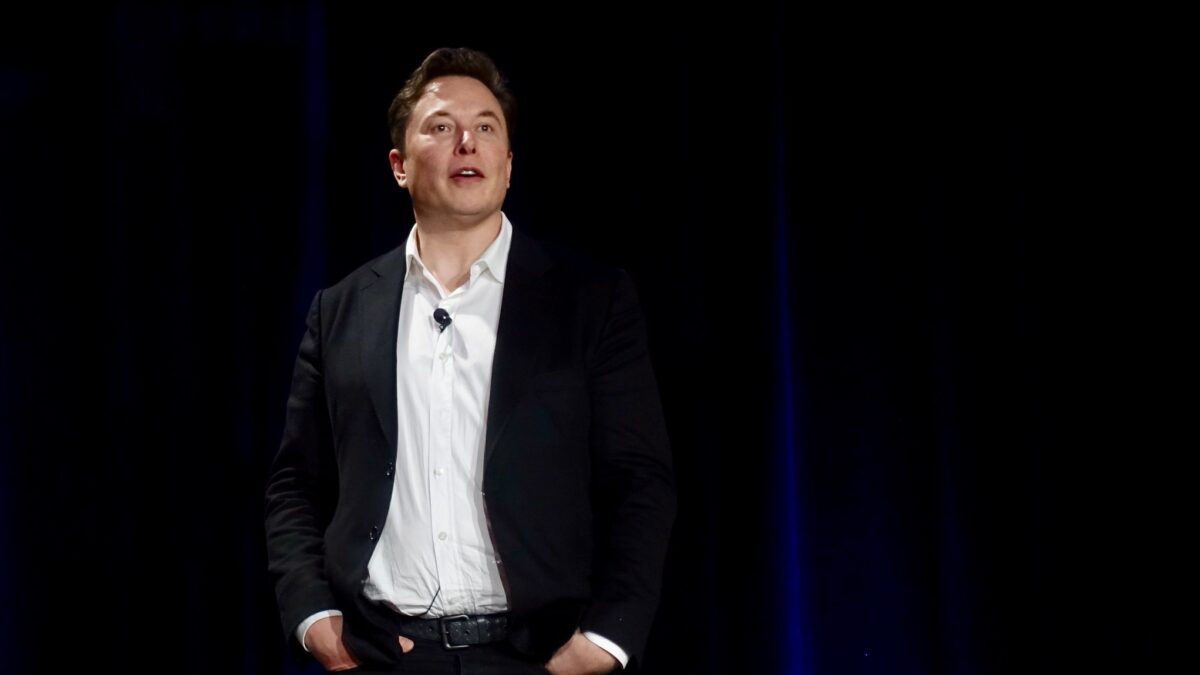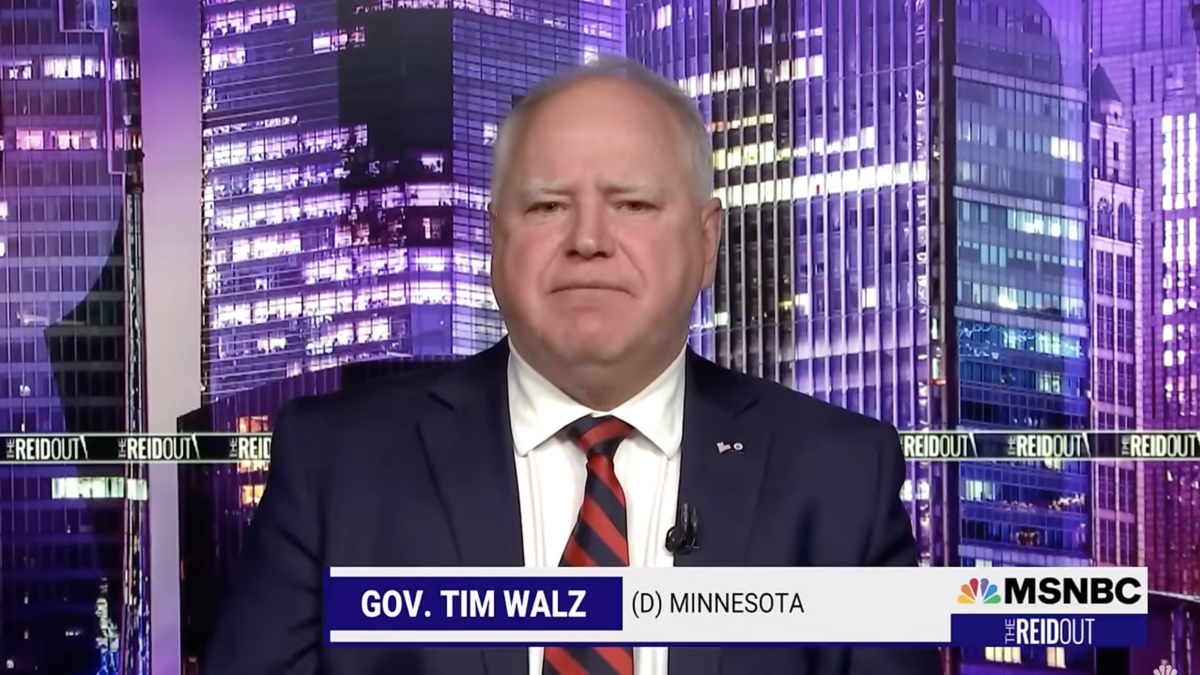After nearly three years of lording his bureaucratic power over the nation and claiming to “represent the science,” National Institute of Allergy and Infectious Diseases Director Anthony Fauci remembers hardly anything about the Covid regime he leveraged to keep Americans masked and at home.
In fact, during his seven-hour deposition, Fauci failed to recall pertinent information about his role in the federal government’s Covid weaponization at least 174 times.
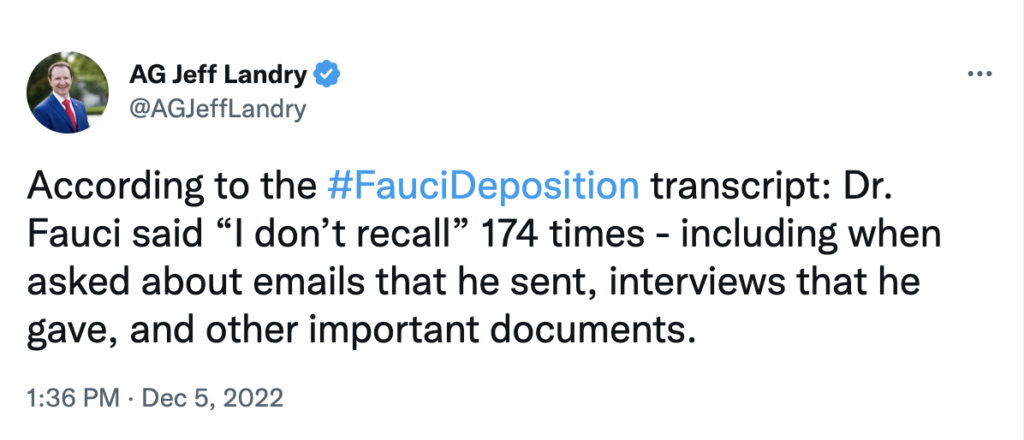
The depositions with Fauci and other high-profile members of the Biden administration are part of a lawsuit from Missouri Attorney General Eric Schmitt and Louisiana Attorney General Jeff Landry which seeks to expose the collusion that fueled Big Tech’s censorship spree against dissenters of the Covid-19 groupthink.
The attorneys general specifically subpoenaed Fauci for becoming “directly involved with multiple social media censorship campaigns against COVID-19 misinformation” including attempting to “discredit any theory” that the virus resulted from a lab leak in Wuhan. For his severe mishandling of Covid, Fauci raked in more than $1.7 million in 2020 alone.
When questioned further about his role, Fauci failed to recall key conversations and documents related to the federal government’s handling of the virus. Fauci said he couldn’t recall when he first became familiar with “The Great Barrington Declaration,” a document written by scientific experts challenging the government’s heavy-handed lockdowns, even though he colluded with former National Institutes of Health Director Francis Collins to issue a “quick and devastating published take down” of it in October 2020. He said he couldn’t recall whether he authorized exceptions for certain parties to do gain-of-function research. Fauci also couldn’t explain why he emailed his deputy director Hugh Auchincloss literature about gain-of-function research in February of 2020, nor could he remember when he had met several scientists involved in researching coronaviruses.
When he wasn’t giving counsel the James Comey amnesia treatment, Fauci indignantly defended his decisions, citing his concerns that the same types of “misinformation” that fueled “wild speculations and accusations, you know, blaming the Chinese” would get out of hand without intervention.
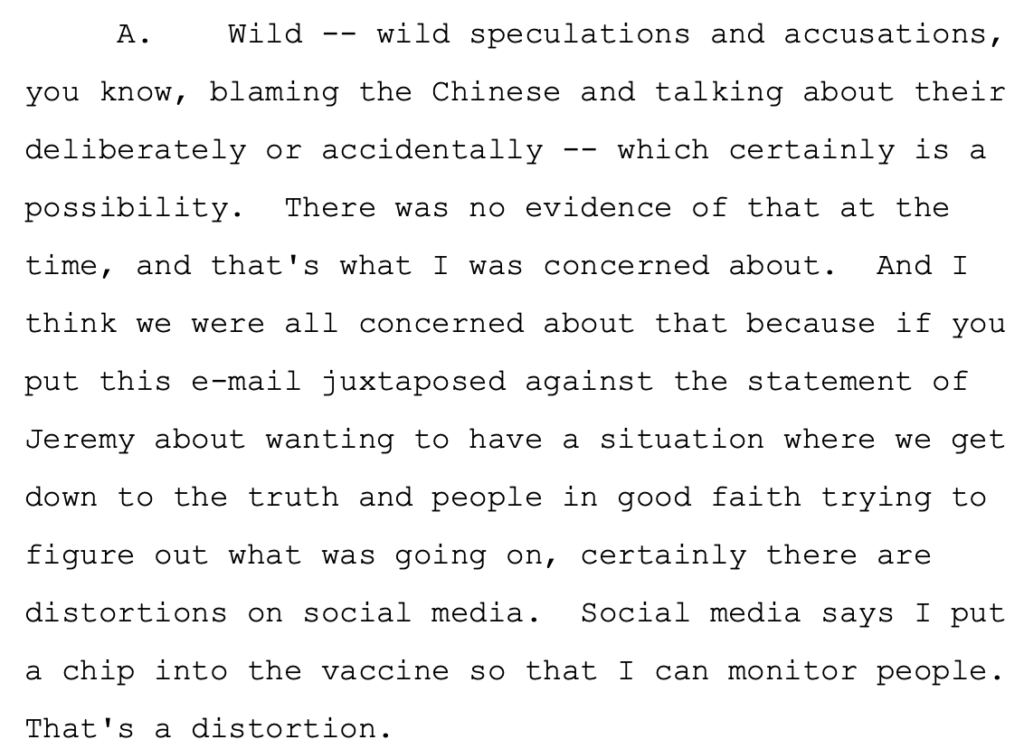
Multiple times throughout the deposition, Fauci admitted the possibility that his agency and other members of the federal government could have communicated with censors at Facebook, Twitter, and other Silicon Valley giants to suppress information that ran contrary to his preferred narrative.
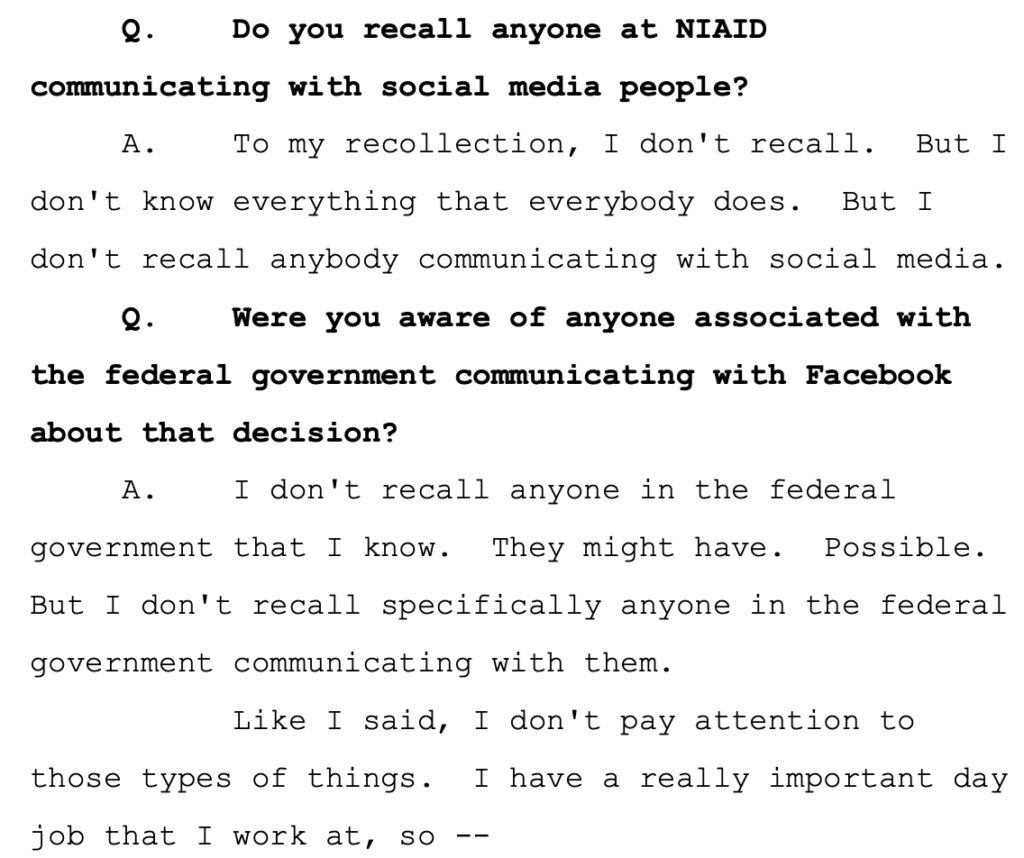
Yet, Fauci tried to deflect personal blame by claiming he was not “aware of suppression of speech on social media.”

He also buried the fact that his daughter worked at Twitter.
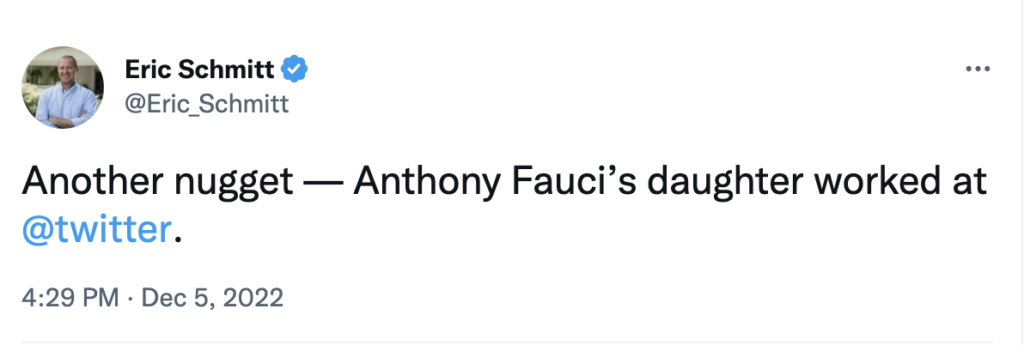
Then Fauci claimed he couldn’t recall his conversations about whether the virus originated in a lab.
Previously uncovered emails indicate that Fauci, along with Collins, knew as early as Feb. 1, 2020, that “COVID-19 may have leaked from the [Wuhan Institute of Virology] and, further, may have been intentionally genetically manipulated.”
Instead of weighing the evidence, Fauci and Collins pressured a group of scientists to abandon a paper they were authoring about the lab as the possible origin of the virus. They also contemplated what their agencies could do, potentially with Big Tech censors’ help, to “put down this very destructive conspiracy.”
When legal counsel questioned Fauci about his lab leak conversations with Collins, the chief medical adviser to President Joe Biden dodged. He eventually ended the exchange with his infamous line: “I don’t recall.”
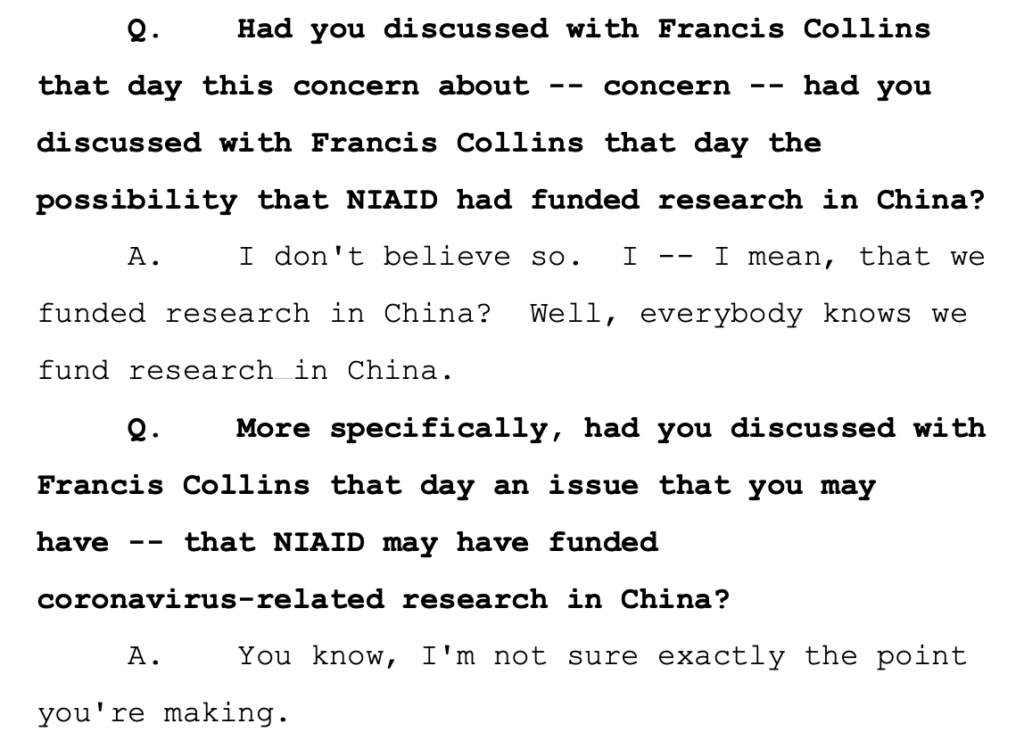
Moments after he touted his 38-year record as director of the National Institute of Allergy and Infectious Diseases, Fauci refused to take responsibility for his agency’s authorization of the EcoHealth Alliance’s dangerous gain-of-function research on bat coronaviruses in China.
“I do not individually approve grants. They go through multiple levels of peer review, so I would not have, by standard way things work, have seen this, read it, or individually approved it. That’s not the way things work in the Institute,” Fauci said. “I have no recollection of the initiation of this grant.”
Fauci also claimed to be only “vaguely familiar” with the EcoHealth Alliance, despite the fact that the organization run by Peter Daszak received funding from Fauci’s agency for years.
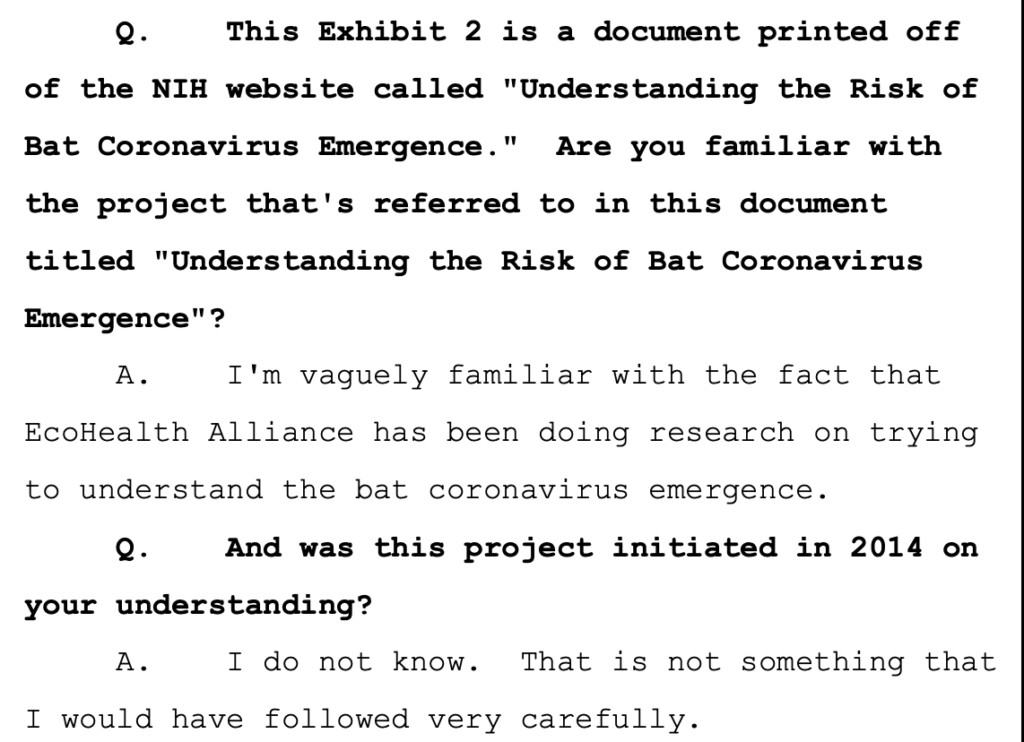
Fauci also contradicted his previous testimonies and interviews several times throughout the course of his deposition.
Emails obtained last year through the Freedom of Information Act indicated Fauci knew as early as February 2020 that face masks were largely ineffective at preventing the spread of illness.
In those emails, Fauci told a colleague she didn’t need to wear a mask while traveling because “Masks are really for infected people to prevent them from spreading infection to people who are not infected rather than protecting uninfected people from acquiring infection.” He continued: “The typical mask you buy in the drug store is not really effective in keeping out virus, which is small enough to pass through material. It might, however, provide some slight benefit in keep out gross droplets if someone coughs or sneezes on you.”
Fauci confirmed to lawyers that this exchange occurred. What he didn’t mention in his testimony, however, was that mere months after that exchange with his colleague, Fauci called for universal mask mandates regardless of people’s health status.
